Russell: Fall Garden Records Beat Ottawa Planting Guesswork
Quick Takeaways:
- Fall garden journaling helps overcome Ottawa's unpredictable climate and soil variations.
- Record plant successes/failures, pest issues, soil conditions, and weather events.
- Use fall notes during winter to create a targeted spring planting and task plan.
- Track trees, shrubs, bulbs, and lawn issues for comprehensive landscape management.
- Fall is a good time for soil improvement and tackling perennial weeds.
Ready to plan your most successful garden yet? Taking good notes now makes all the difference. Need help implementing your plans or tackling fall cleanup? Request your free quote today!
Introduction: Ditch the Crystal Ball, Grab a Notebook! Smarter Ottawa Gardening Starts in Russell (and Your Backyard!)
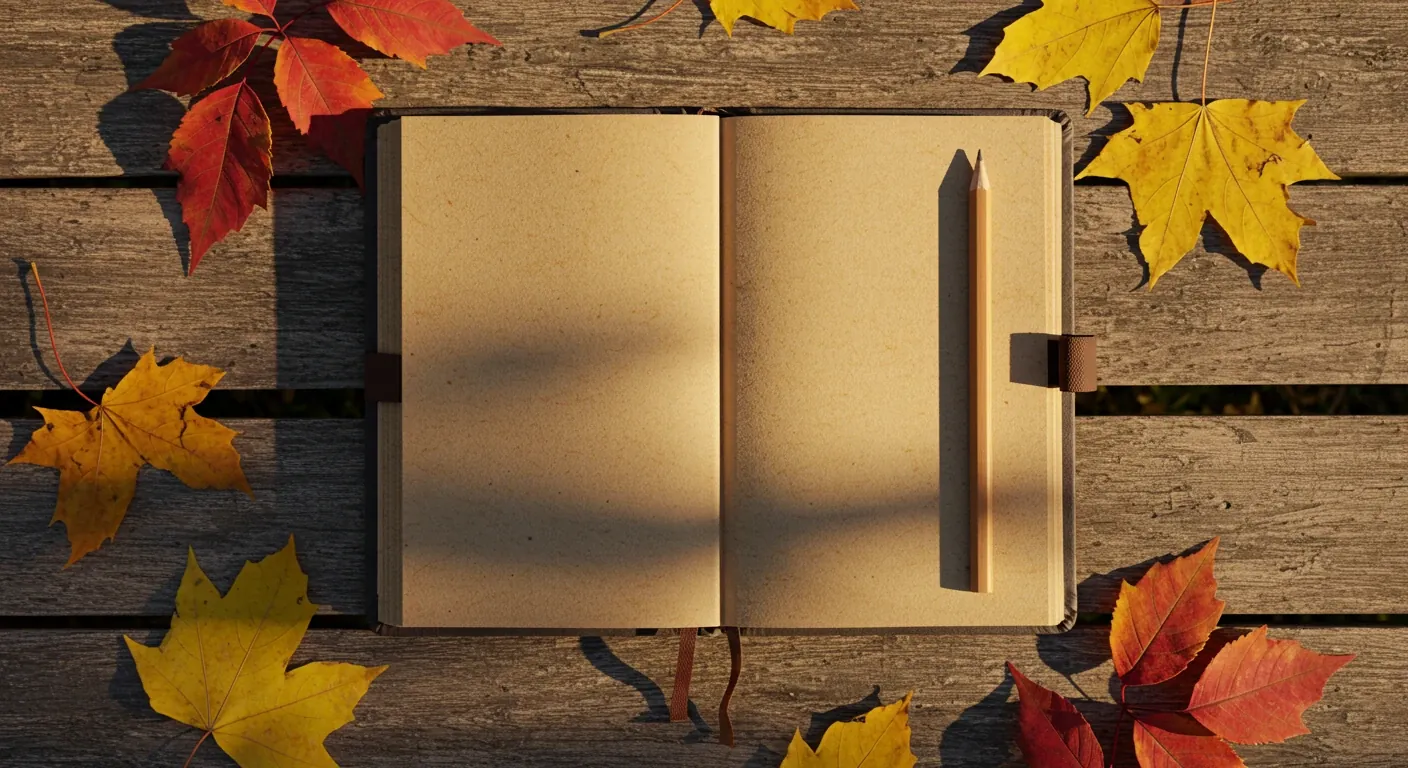
Okay, fellow Ottawa gardeners, let's be honest. Do you sometimes feel like predicting next year's growing season requires a crystal ball? One year, the last frost feels like it's in June; the next, surprise heatwaves cook our tomatoes! It’s enough to make even seasoned green thumbs in places like Greely or Manotick scratch their heads. Trying to remember exactly when those pesky aphids showed up on the roses or which corner of the landscape really baked in the August sun feels like pure guesswork, right?
Well, it's time to ditch that imaginary crystal ball and grab something far more powerful: a simple notebook! Yes, really. The secret to smarter, less frustrating gardening in our unique Ottawa climate often starts now, in the fall, by taking a few simple notes about your garden.
Think about it. Our region, including beautiful areas like Russell, has specific challenges – a shorter growing season, unpredictable spring and fall temperatures, and unique soil conditions from one backyard to the next. Remembering what plants thrived, what sulked, where the drainage was poor after that massive downpour, or which variety of bean actually produced more than the rabbits could eat – that's gold. This isn't just random scribbling; it's creating your personal gardening and landscaping blueprint based on real results. For more about soil, see our tips on soil preparation.
Keeping track helps you make informed decisions next spring. You'll know which plants to buy (or avoid!), where to improve the soil structure, how to anticipate pest problems before they explode, and plan your garden design more effectively. Forget guesswork; let's embrace smart planning based on this year's reality. Ready to turn last season's lessons into next season's success? Let’s get started!
Why Bother Plotting in the Fall? The Case for Garden Journaling in the National Capital Region
Alright, let's face it. Once the crisp Ottawa fall air hits, and the leaves start turning those glorious shades of red and gold, the temptation is strong to hang up the trowel, grab a pumpkin spice something, and forget about the garden until spring thaws the soil. We get it! After a busy growing season, especially with our unique climate challenges here in the National Capital Region, who wants more garden chores? But hear us out: taking just a little time now for some garden journaling can save you heaps of headache (and maybe even some money) next year. Think of it as plotting your garden domination, one scribbled note at a time!
So, why bother?
- Your Memory Isn't That Good (Sorry!): Remember that specific corner in your Barrhaven backyard where the tomatoes absolutely thrived, while the ones near the fence sulked all summer? Or exactly when those slimy slugs started feasting on your hostas in Nepean? By next April, these crucial details often vanish into a vague "garden brain fog." Jotting down successes, failures, pest outbreaks (timing and location!), and watering notes while they're fresh is invaluable. Which plants loved the sun? Which needed more shade? When did you really see the first frost warning? Write it down!
- Smarter Spring Decisions: Your fall notes become your personalized shopping list and planning guide for next spring. No more impulse-buying flats of flowers that promptly wilted last year in that tricky spot. You'll know which varieties performed well, where you need to amend the soil, and maybe where that grand design idea didn't quite pan out. This leads to more targeted purchases and less wasted effort – definitely more eco-friendly than guessing!
- Outsmarting Ottawa's Quirks: Our region, from Richmond to Osgoode, throws curveballs – surprise late frosts, sudden summer heatwaves, patches of stubborn clay soil. Journaling helps you track these local patterns in your specific microclimate. Did that heat-loving pepper actually get enough sun? Did your spring bulbs emerge earlier or later than usual? This intel helps you choose tougher plants and adapt your strategies year after year. Need help managing Ottawa's quirks? Check out the City of Ottawa's gardening resources or consider expert advice from the Master Gardeners of Ottawa-Carleton.
- Planning Fall Tasks & Future Improvements: Fall isn't just about remembering; it's also about doing. Did you notice some perennials getting wildly overgrown? Make a note! It might be the perfect time to learn how to divide overgrown plants this fall. Was your lawn care routine successful, or are there patchy areas needing attention next year? Reviewing notes can help refine your approach, maybe incorporating some secrets to perfect Russell lawn care. If you have a water feature, maybe you battled algae all summer – jot down what you tried and research some tips for clear pond water for next season. As the days get shorter, you might even realize you need better illumination – make a note about thinking about outdoor lighting for fall safety and ambiance. Your journal becomes a logbook for ongoing landscaping dreams and maintenance needs.
- Knowing When to Call for Backup: Let's be real, sometimes reviewing your notes highlights tasks that feel overwhelming. Maybe the sheer volume of leaves is too much, or a bigger landscaping project identified in your journal needs professional expertise. Knowing what needs doing helps you decide if tasks like fall cleanup are manageable or if it's time to consider professional Russell yard cleanup services. Detailed notes can even help you communicate your needs better if you decide to explore our comprehensive landscaping services.
So, grab a notebook (or even a notes app!) this fall. Spend just an hour or two walking your yard, reflecting on the season, and jotting things down. Future You, surrounded by a thriving garden next summer, will definitely thank you! Find out more about us and how we help Ottawa homeowners.
Your Fall Garden Detective Kit: What Exactly Should You Be Recording?
Okay, Detective Gardener, you've got your trusty notebook (or phone notes app) ready. But what exactly are you supposed to write down? Don't worry, this isn't about writing a novel, just capturing the key clues your garden left behind this season. Think of it as assembling your case file for a more successful gardening adventure next year in Ottawa!
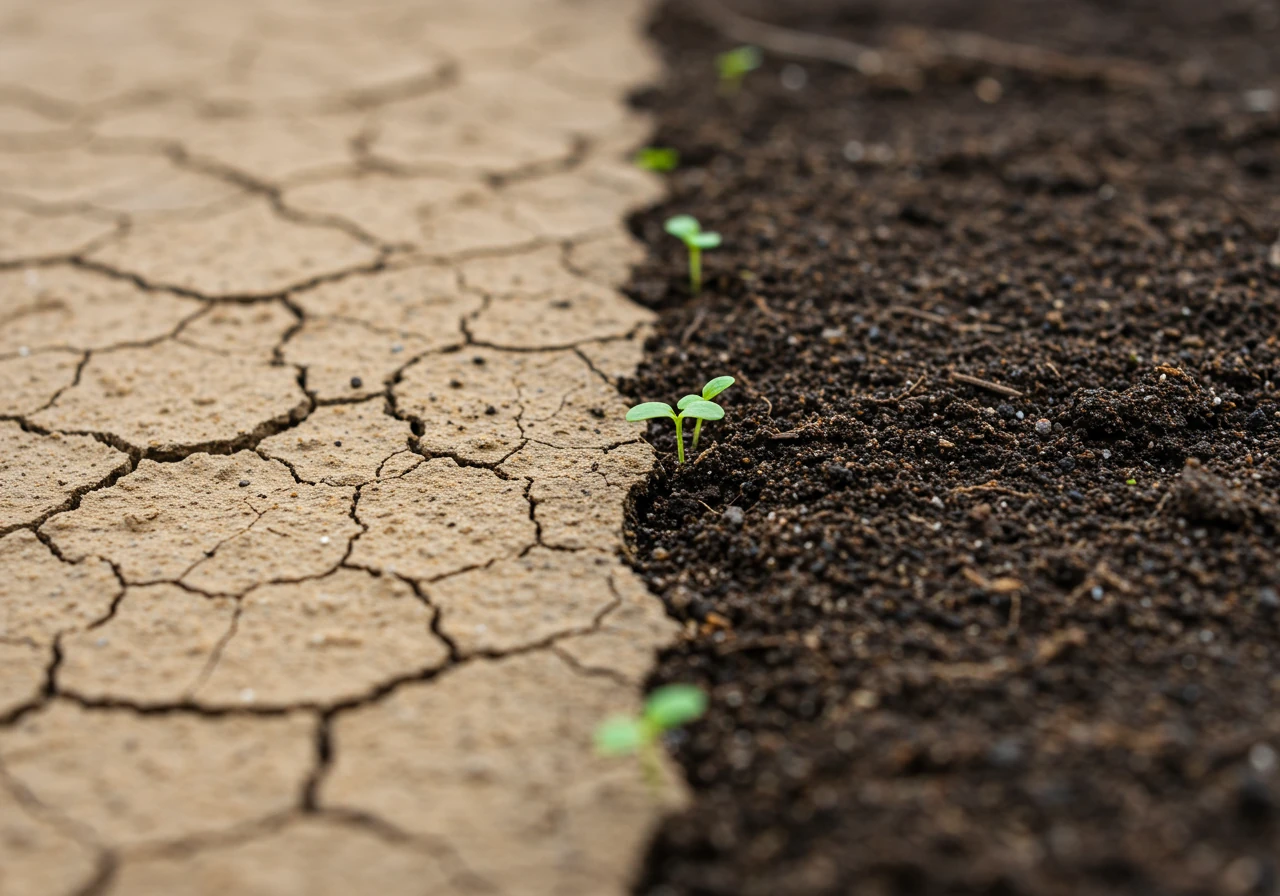
Here’s your checklist for what to record:
- Plant Performance (The Stars & The Divas): Who stole the show, and who sulked in the corner? Be specific! Don't just write "tomatoes did okay." Note the variety ("Celebrity tomatoes thrived, Beefsteak struggled"). Where were they planted? Note plants that seemed particularly happy or stressed. Did those hydrangeas finally bloom after you moved them? Did the petunias fizzle out early? This intel helps you pick winners next spring.
- Pest & Disease Log (The Unwanted Guests): Ah, the villains of our garden stories. When did the aphids attack the roses? Where did powdery mildew appear on the squash? Note the pest or disease, the plants affected, when you first noticed it, and how bad it got. Did your home remedy work, or did you need stronger measures? This log helps you anticipate problems next year and maybe take preventative action.
- Soil & Water Notes (The Foundation is Everything): This is crucial, especially with Ottawa's varied conditions. Did rainwater pool excessively near the downspout after that huge storm? Or does water run right through that sandy patch near the back fence, like you might find in parts of Kars? Maybe you battled heavy clay soil, common around Metcalfe, that baked hard in the sun. Note areas where plants looked thirsty even after watering, or where they seemed waterlogged. How did your lawn care efforts pan out? Are there patchy areas that just refused to green up, making you wonder if maybe professional sod installation is the answer for next year? Noting these soil and water patterns helps you plan amendments or consider different plants suited to the conditions. If clearing out failed beds or tackling heavy clay soil feels like too much, specialized help like a Metcalfe yard cleanup service can prepare the ground for improvements.
- Weather Quirks (Mother Nature's Mood Swings): Our Ottawa climate keeps us guessing! Jot down key weather events and their timing: the real last spring frost, extended heat waves, surprise hail storms, periods of drought, or the first killing fall frost. How did these events affect specific plants? This helps you understand your specific microclimate better. You can cross-reference with historical data from sources like Environment Canada.
- Successes & Failures (The Report Card): Give your garden a grade! What worked beautifully? (Amazing zucchini harvest, stunning flower border). What was a flop? (Carrots refused to grow, that new perennial vanished). Be honest! Celebrating wins and acknowledging flops guides future planning.
- Layout & Design Ideas (The Blueprint for Next Year): As you walk around, look at the overall design. Does an area feel too crowded? Is there an empty spot crying out for a feature plant? Did that tall grass block the view you wanted? Sketching a simple map can be incredibly helpful here. Perhaps planning for better mulching and edging is needed.
Your Simple Garden Map (X Marks the Spot!)
Grab a piece of paper and sketch a basic layout of your yard – house, deck/patio, paths, lawn areas, and garden beds. It doesn't need to be art! Then, use your notes to mark key observations directly on the map. "Aphids bad here," "Needs more sun," "Drainage poor," "Consider taller plants along fence," "Weed explosion zone." This visual overview is fantastic for planning changes.
Reviewing all these notes might highlight specific problem areas or tasks. Maybe you realize the sheer amount of leaf debris is unmanageable, suggesting it's time to look into an Ottawa yard cleanup service. Or perhaps the review reveals larger property-wide issues, like invasive weeds taking over, pointing towards the need for a more comprehensive Ottawa property cleanup service. If you're in Russell and the leaves are piling high, specific help like a Russell yard cleanup service might be the perfect solution identified through your detective work. Knowing what needs doing is the first step, and understanding who can help is the next – learn more about us and how we approach these challenges. Also, check out what our clients say on our Google Business Profile!
So, put on your detective hat, grab that notebook, and start observing. These simple notes are your secret weapon for a smarter, more rewarding Ottawa garden next season!
Garden Planning Focus
Focus: Assessing the Season
Use this time to walk your garden, notebook in hand. Identify winners and losers among your plants. Note soil issues (drainage, compaction), pest hot spots, and areas needing design tweaks. Don't forget to log key weather events like first frost.
This is also when major cleanup happens. If you need assistance, consider our Marionville yard cleanup service or similar services for your area.
Focus: Research & Blueprinting
During colder months, review your fall notes. Research solutions for identified problems (e.g., soil amendments, pest-resistant varieties). Draft a rough garden map with planned changes. Create your initial task list and shopping list for spring.
Think about long-term maintenance needs - perhaps a garden maintenance plan is needed?
Focus: Execution & Planting
As the ground thaws, put your plan into action! Refer to your notes for timing (e.g., when pests appeared last year). Purchase plants from your curated list. Prepare soil based on your fall assessment and winter research. Stick to your plan to avoid guesswork!
This might involve garden installation or significant planting efforts.
From Fall Notes to Spring Flourishes: Decoding Your Records for Action
Okay, you survived the fall gardening season, meticulously documented your wins and woes like a seasoned detective, and now… what? Does that notebook just gather dust until April? Absolutely not! Those scribbles and your handy map are your secret weapon for a smoother, smarter spring in your Ottawa garden. Let's turn those fall notes into spring flourishes! Think of it as decoding your own secret garden messages.
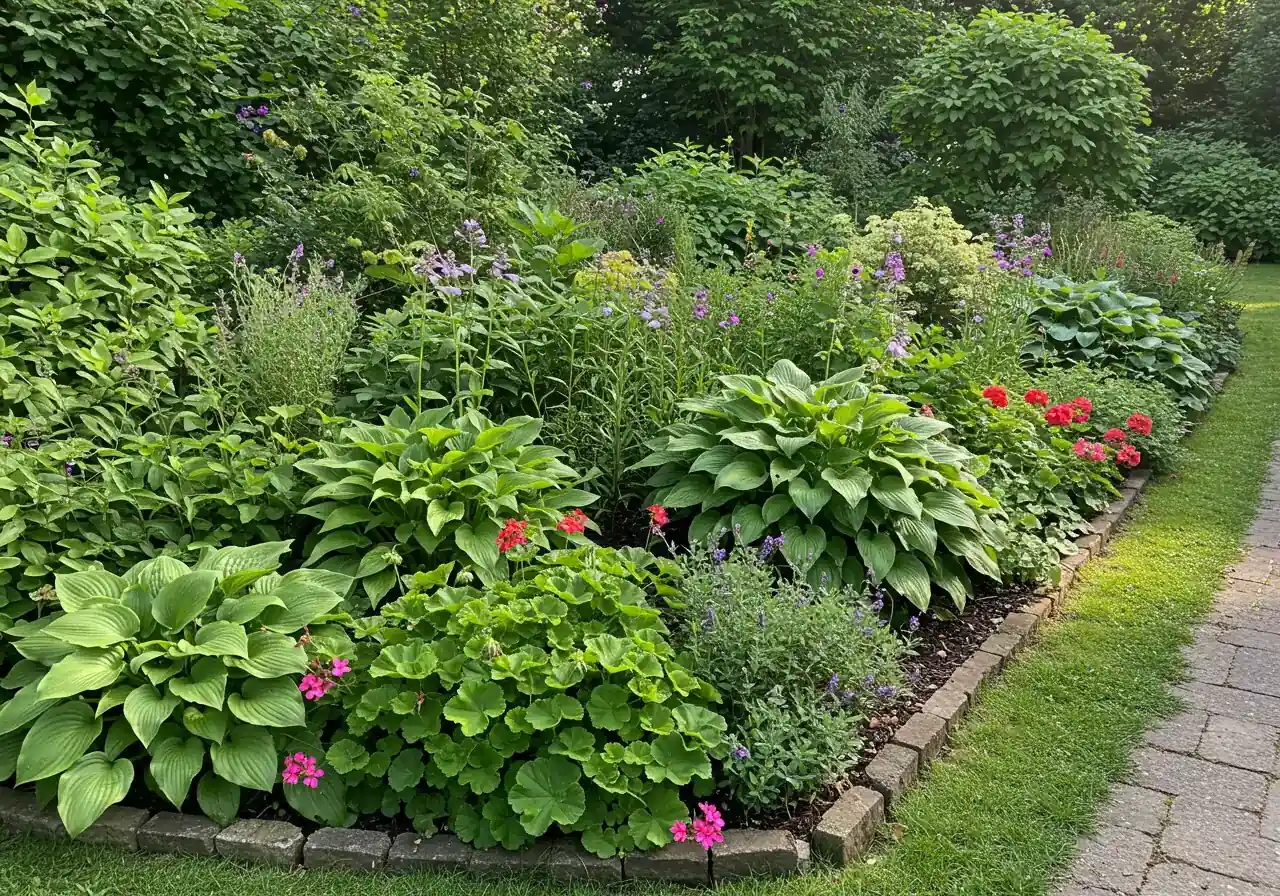
Here’s how to transform that valuable intel into an actionable plan:
Step 1: The Grand Review (Grab a Cozy Drink!)
Sometime during the colder months (when you definitely aren't digging in the soil), sit down with your notes and map. Read through everything. Look for patterns.
- Where did plants consistently thrive or struggle?
- Were pest problems localized or widespread? When did they appear?
- Which areas stayed soggy after rain, or dried out instantly?
- What surprised you (good or bad)?
Cross-reference this with Ottawa's typical climate realities. We’re generally in Plant Hardiness Zone 5a/5b, meaning we need plants that can handle our winters and shorter growing season. Did your notes reflect this? For example, maybe that beautiful perennial rated for Zone 6 just didn't make it through the winter in your Winchester yard – valuable info!
Step 2: Pick Your Battles (Prioritize Like a Pro)
You probably can’t fix everything at once (unless you have superpowers, in which case, can we borrow them?). Identify the top 2-3 biggest challenges or opportunities from your review.
- Was it the losing battle against weeds in the back corner?
- The sad state of your front lawn? Maybe improving your Ottawa lawn care options approach needs to be priority #1.
- That awkward empty spot crying out for a design upgrade?
Step 3: Become a Solutions Sleuth
Now, research solutions specifically for your prioritized problems.
- Soil issues? Look up amending techniques for clay or sandy soil (hello, compost!). Check resources like the Ontario Ministry of Agriculture, Food and Rural Affairs (OMAFRA) for guidance.
- Pest problems? Research integrated pest management, companion planting, or resistant varieties before you buy plants.
- Lawn woes? Maybe it’s time to overseed, aerate, or even consider a fresh start with professional sod installation services if the damage is extensive.
- Overwhelmed? Perhaps your notes reveal keeping up is just too much. Investigating a regular City Garden Maintenance Service could be the solution for ongoing support.
Step 4: Draft Your Spring Blueprint (The Action Plan!)
This is where it all comes together. Create:
- A Master Task List: "Early April: Prune roses." "Mid-April: Amend soil in veggie patch." "Late May (after frost risk): Plant tomatoes."
- A Smart Shopping List: List specific plant varieties that your notes suggest will succeed, or replacements for those that failed. Resist impulse buys!
- Your Personalized Garden Calendar: Mark key dates based on your notes and typical Ottawa timing. When did aphids appear last year? Set a reminder to start checking a week earlier. When was the last frost? Note it down as a guideline (always check current forecasts!). This proactive planning is gold.
Step 5: Know When to Tag in Help
Reviewing your plan might make you realize some tasks are bigger than you want to tackle alone. That patchy lawn might benefit from professional diagnosis, or maybe clearing out a failed garden bed feels overwhelming. If winter storms left a mess or your fall notes highlighted major debris issues, scheduling a City Yard Cleanup Service early could save you spring stress. Don't be afraid to call for backup! By the way, when you contact services, rest assured we respect your information; you can always review our commitment in our Privacy Policy.
By decoding your fall notes this way, you're setting yourself up for a fantastic gardening season. You'll walk into the spring with confidence, a clear plan, and hopefully, fewer "oops" moments. Future you, enjoying those spring flourishes, will definitely send a mental Thank You! to your past self for doing this homework. Happy planning!
Common Fall Garden Issues (Russell Area - Sample Data)
*Illustrative data based on common regional challenges.
Beyond the Rows: Tracking Trees, Shrubs, Bulbs, and Lawn Care
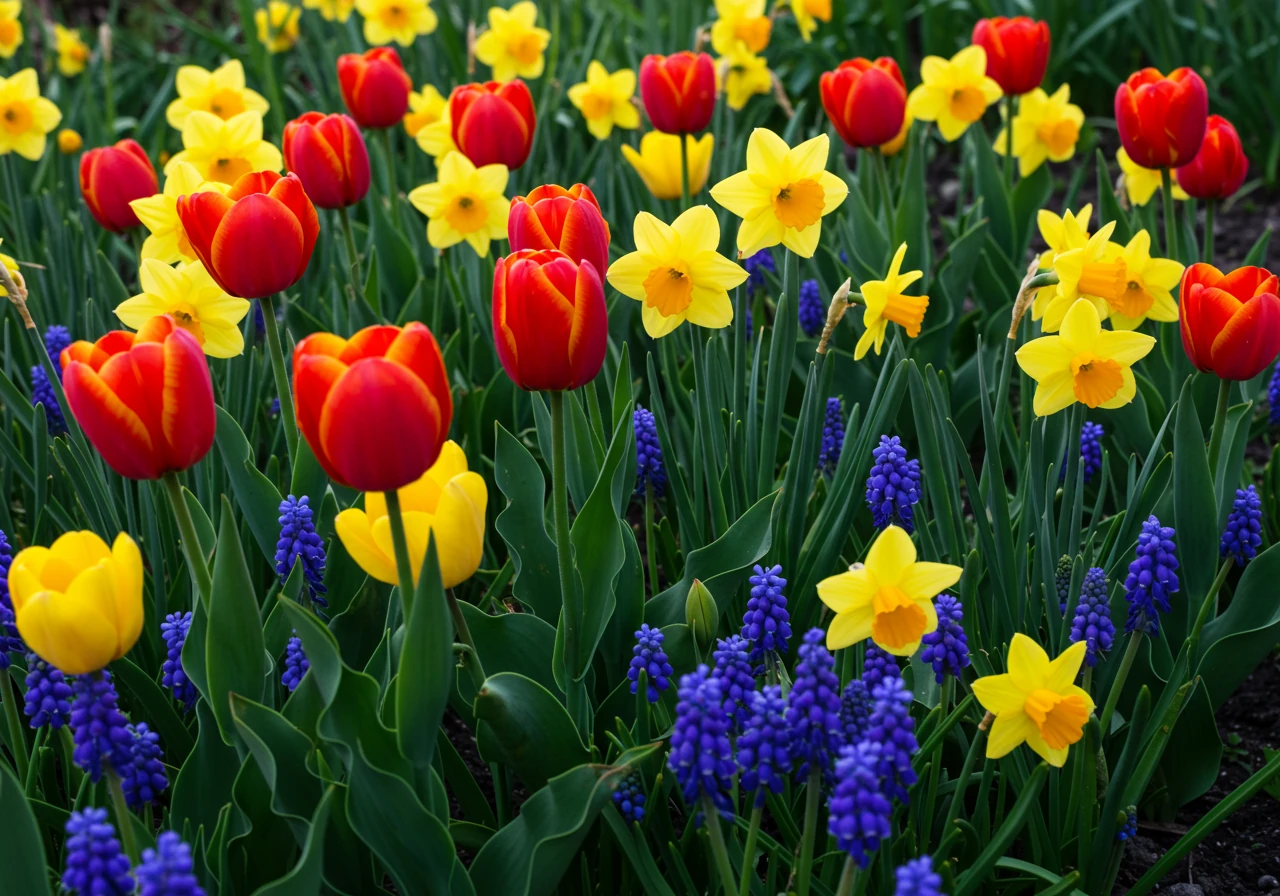
Okay, garden journalers, let's broaden our horizons! While tracking those tomatoes and zucchini is super useful, our gardens and landscapes are much more than just the veggie patch. What about the majestic maple casting shade, the cheerful spring bulbs, that slightly grumpy evergreen shrub in the corner, or the lawn that ties it all together? These long-term residents of our yards deserve some notebook love too, especially here in the varied conditions around Ottawa. Keeping tabs on them helps maintain the structure and beauty of our outdoor spaces for years to come.
Tracking Your Trees and Shrubs:
These woody wonders are the backbone of our landscape design. Think about noting:
- Pruning Notes: When did you prune that lilac or hydrangea? Did it bloom better afterwards? Jotting down when and why you pruned helps you remember the best timing for next year and avoid accidentally removing next season's flower buds! If you tackled major branch removal, maybe note how long the cleanup took – useful if considering a future city-wide yard cleanup service for bigger jobs.
- Pest Patrol: Did tent caterpillars feast on your crabapple in Barrhaven again? When did you notice scale on the euonymus? Tracking these specific pests and their timing helps you prepare or take preventative, eco-friendly action next season.
- Health Check: Note signs of stress like yellowing leaves, dead branches, or weird spots. Is that spruce looking a bit thin near the base? Maybe it suffered winter burn, common in our climate, or needs different care. Significant issues might warrant professional advice.
- Growth Habits: Is that little shrub you planted becoming a giant space hog? Note its growth rate to plan for future trimming or potential relocation.
Bulb Bonanza Log:
Those bursts of spring colour are fantastic, but fleeting. To get the best show year after year:
- Bloom Times: Record when your tulips, daffodils, and alliums actually flower in your Greely garden. This helps you plan for continuous colour by planting bulbs with staggered bloom times.
- Performance Review: Did they come back strong? Did some varieties fizzle out? Maybe the squirrels had a feast (a common Ottawa complaint!). Note which ones thrive and where.
- Location, Location, Location: Make a quick sketch or note where you planted new bulbs. Trust us, you won't remember next fall when you want to add more! Once bulbs fade, the area can look messy; if it’s extensive, an Ottawa garden clean up service can help tidy up spent foliage.
Lawn Life Ledger:
Ah, the lawn. Love it or debate it, keeping track helps:
- Problem Patches: Note areas prone to grubs, drought stress, weeds, or moss (often indicates compaction or too much shade – common near large trees, perhaps like those found in Vernon or Kenmore).
- Treatment Tracker: When did you fertilize, aerate, or overseed? What products did you use? Did it work? Consistent lawn care notes lead to greener results.
- Water Wisdom: How often did you really need to water? Tracking rainfall and lawn response helps you water more efficiently, saving water and money.
- Future Plans: Is there a patchy area beyond saving? Maybe your notes will confirm it’s time to consider replacing it with a new flower bed or groundcover through a garden install project. If large areas of your property, beyond just the garden beds, need serious attention due to neglect or invasive species identified in your notes, a broader Marionville property cleanup service might be what’s needed to reset the space, or for more localized but intensive work, a Metcalf garden clean up service could focus on specific problem zones.
Keeping these broader notes helps you see the bigger picture of your yard's health and design. It allows for smarter planning, more targeted care, and ultimately, a more beautiful and enjoyable Ottawa landscape. And hey, if you decide to book any professional help based on your observations, it’s always wise to review the company’s Terms and Conditions beforehand! Give us feedback on our estimates via the estimate feedback form.
Timeline: A Year of Informed Gardening
Late Fall (Oct-Nov)
Conduct final garden walk-through. Record successes, failures, pest issues, soil conditions. Complete major fall cleanup. Amend soil with compost.
Winter (Dec-Feb)
Review fall notes. Research solutions & suitable plant varieties for Ottawa climate (Zone 5). Draft initial garden layout changes and spring task list. Order seeds.
Early Spring (Mar-Apr)
Finalize garden plan & shopping list. Start seeds indoors if applicable. Perform early spring cleanup, pruning (as needed per plant type). Prepare beds once soil is workable. Monitor for early spring pests or diseases noted previously.
Late Spring (May-June)
Plant hardy annuals & vegetables after last frost risk (consult notes & forecast!). Implement pest prevention strategies noted in journal. Begin regular watering & maintenance schedule. Update journal with planting dates.
Summer (July-Aug)
Monitor plant growth, watering needs, pests & diseases – record observations! Harvest produce. Adjust care based on real-time conditions and previous notes (e.g., provide shade if notes indicated sun stress).
Early Fall (Sept-Oct)
Begin noting end-of-season performance. Plan fall planting (bulbs, garlic). Start gentle cleanup. Prepare for the late fall review cycle – the process repeats!
Highlight Box: Your Fall Record-Keeping Cheat Sheet
Feeling like your Ottawa garden notes are more chaotic than curated? No worries! Think of this as your easy-peasy cheat sheet to turn those fall scribbles into spring success. Here’s the lowdown:
- Jot Down the Stars & the Stinkers: Briefly note which plants thrived (yay!) and which flopped (oops!). Include where they were planted.
- Track the Troublemakers: When and where did pests or diseases show up? Where was the soil too wet or dry in your Manotick yard? Details matter for future planning!
- Map the Mess (Simply!): A quick sketch marking problem spots or successes helps visualize changes needed, like planning next year's mulching and edging strategy.
- Winter Review = Spring Smarts: Use your notes later to make a targeted shopping list and task plan for next season’s gardening.
- Know Your Limits: If notes reveal overwhelming tasks (hello, leaf mountain!), consider options like ongoing garden maintenance support or a one-time city property cleanup service for bigger jobs. Before booking anything, it's smart to review the provider's Terms and Conditions.
- Questions? Ask Away! Still scratching your head about applying your notes? Feel free to contact us for advice!
Ottawa Garden FAQs: Your Fall Planning Questions Answered
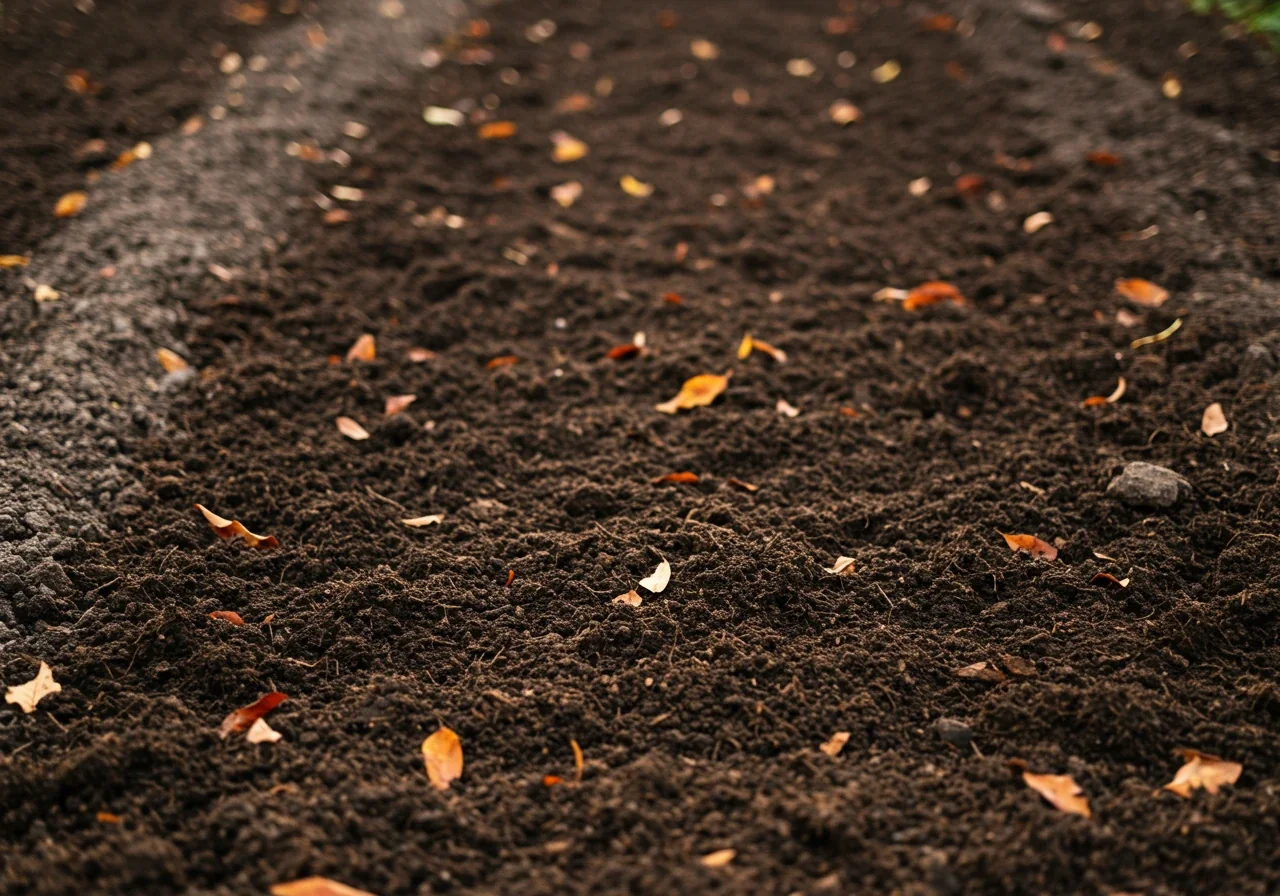
Great question! While the memory is fresh, it's tempting to plan amidst the leaf piles. However, the best time is often after the main fall cleanup rush, maybe on a chilly afternoon in late October or November with a warm drink. By then, the garden structure is clearer, you've likely finished major chores, and you can reflect without distraction. Reviewing notes then helps solidify plans for winter research (like finding frost-tolerant perennials perfect for the Ottawa climate) or deciding if you need bigger help next spring. You can still jot down quick insights while working, but save the focused planning session for a quieter moment.
You're not alone – Ottawa has diverse soil, from sandy bits in Kars to heavy clay near Metcalfe! Fall is actually a fantastic time for soil improvement. Once your annuals are cleared, spread a generous layer of compost or well-rotted manure over your beds. You can lightly fork it into the top few inches or just leave it as a top dressing. Freezing and thawing cycles over winter will help work it in. Adding shredded fall leaves also boosts organic matter. Thinking about what amendments to use? Getting your material selection right is key for effective soil building over the winter months, setting you up for healthier plants next spring.
Ah yes, the eternal weed battle! Fall offers a strategic advantage. Many perennial weeds (like dandelions or thistle) are pulling energy down into their roots now, making them more vulnerable to removal. Dig them out, getting as much root as possible. For areas completely overrun, clearing them thoroughly now is crucial. Depending on the scale and type of weeds, a deep layer of mulch (wood chips or shredded leaves) after clearing can smother emerging winter annuals and prevent spring germination. For truly stubborn or widespread issues across your property, considering a professional property clean up might save you a massive headache next season. Cleaning up gardens in Marionville? Check out our Marionville garden clean up service.
That depends! If a plant was diseased, removing it in the fall is wise to prevent pathogens from overwintering in the soil or debris. For plants that simply underperformed or don't fit your design vision anymore, you can remove them now if the ground is workable. This clears space and lets you prep the area (maybe add compost!). However, if you're unsure or short on time, leaving them until spring is fine too. Sometimes winter interest or providing habitat for beneficial insects is a bonus. Just make sure your notes clearly mark them for removal so you don't forget!
Absolutely! Fall can be a great time for landscape construction, as long as the ground isn't frozen. Cooler temperatures make digging less sweaty! You can define new edges, remove sod, amend the soil in the new area, and even install edging materials. Getting the 'bones' of a new bed ready now means you're all set for planting come spring. Looking at before-and-after photos can be really motivating; check out some amazing landscape transformations for ideas! Just ensure any major digging avoids underground utilities, and plan ahead for waste removal if you're excavating a lot of sod or old plants.
That's the million-dollar question in Ottawa! Generally, you want to aim to get the bulk of your cleanup done before the first permanent snowfall or when the ground freezes solid, typically by mid-to-late November, but it varies year to year. Prioritize removing diseased plant matter and thick layers of leaves off the lawn to prevent smothering or snow mould. Light leaf cover on beds can be beneficial mulch. If the task feels overwhelming as the weather turns, remember that a dedicated city garden clean up service can often work efficiently even in colder weather. For larger properties needing extensive clearing, like dealing with storm debris in areas like Metcalfe, booking a comprehensive Metcalf property cleanup service earlier is better than later!
Conclusion: Plant Smarter, Not Harder – Your Best Ottawa Garden Awaits!
So there you have it! Your crash course in ditching the garden guesswork and embracing the power of a simple notebook. We've journeyed from understanding why fall journaling is brilliant for Ottawa gardening, to what to record (from pesky pests to plant performance), and how to turn those notes into a solid spring plan. It really boils down to this: taking a little time now saves you a whole lot of head-scratching (and maybe back-breaking work!) later.
Think of your garden journal as your personalized cheat sheet for our unique Ottawa climate, unpredictable frosts, and diverse soil types, whether you're tending roses in Manotick or veggies in Greely. It helps you remember what thrived, what sulked, where drainage was dodgy, and when those critters showed up. This isn't just about flowers and veggies; it’s about smart planning for your trees, shrubs, bulbs, and even your lawn care. Ultimately, it means less wasted effort, healthier plants, a better landscape design, and more time actually enjoying your garden.
Now, let's be honest, sometimes reviewing those notes highlights tasks that feel... big. Maybe the fall cleanup seems overwhelming, or implementing your grand spring design needs more hands. That's where working smarter also means knowing when to call for backup!
- Need a hand tackling the leaves and debris your notes revealed? Our Yard Cleanup Service is ready to help across Ottawa, including Russell, Embrun, and Metcalfe. Let us handle the heavy lifting so you can focus on the fun parts of planning.
- Want expert help bringing your garden plan to life next spring and beyond? Explore our ongoing Garden Maintenance Service options. We can help keep your thoughtfully planned garden looking its best all season long.
- Dreaming of bigger landscape changes inspired by your review? Perhaps a new garden bed or tackling a persistent soil issue? Let's talk! Contact us to discuss your vision, whether you're in Manotick, Greely, Winchester, or anywhere nearby.
Stop guessing and start planning. By planting smarter, not harder, your best Ottawa garden truly awaits!

